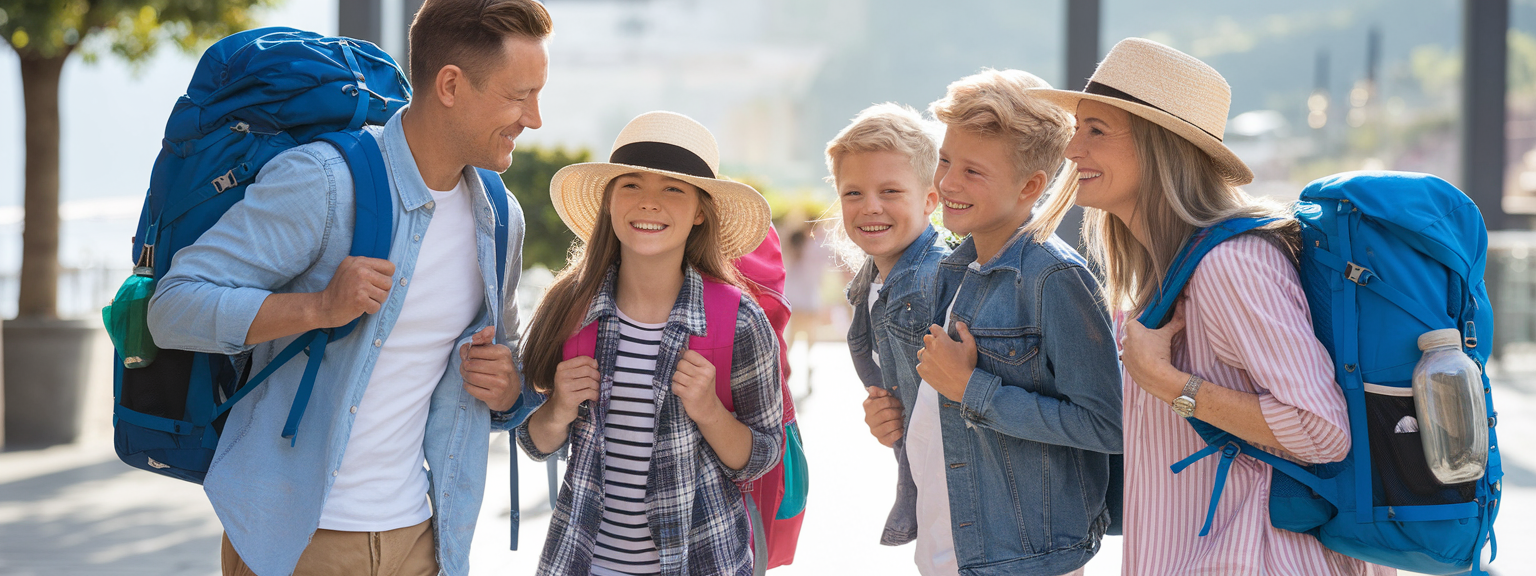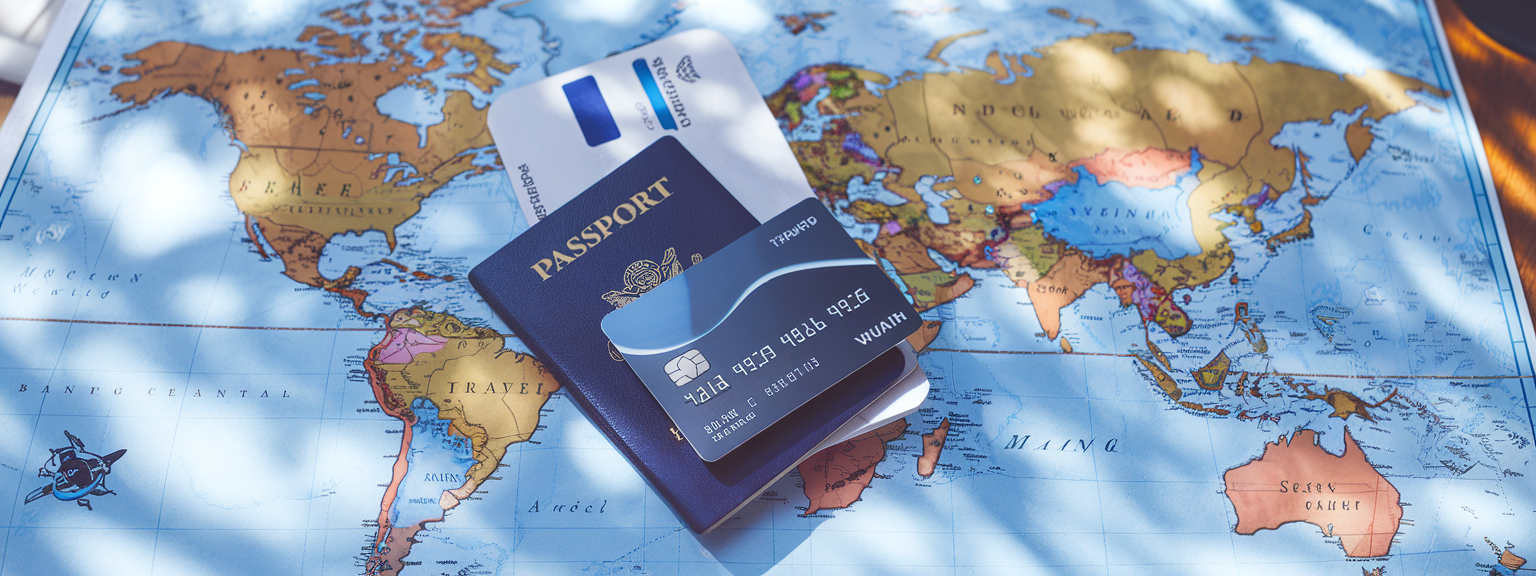Managing Travel Emergencies: Essential Tips for Every Traveler
No matter how carefully you prepare, travel often comes with the unexpected. From flight cancellations to a lost passport abroad or sudden medical emergencies while traveling, you may find yourself managing stressful situations in unfamiliar surroundings. This guide to Managing Travel Emergencies is designed to equip you with practical strategies, travel safety tips, and emergency preparedness travel hacks so that you can face potential crises with confidence.
📍Must-See Attractions
While traditional travel blogs focus on sightseeing, here our “must-see” list is about essential emergency preparations. Think of these as the attractions you must visit before and during your trip to make sure you’re protected in worst-case scenarios.
Document Protection
Create both physical and digital copies of your passport, visas, and ID cards. Store one set with your luggage, another in a safe place at home, and upload encrypted versions to cloud storage. Having multiple copies reduces stress if you face a lost passport abroad.
Medical Readiness
Pack a curated first aid kit along with important medications in original packaging. Include essentials like pain relief, antiseptic wipes, and motion sickness tablets. In case of medical emergencies while traveling, you’ll have immediate, life-saving resources ready.
Emergency Contact Directory
Prepare a list of emergency contacts abroad, including the nearest embassy or consulate, your travel insurer’s hotline, and local emergency service numbers. Store these offline for quick access when Wi-Fi isn’t available.
Insurance Essentials
Investing in comprehensive travel insurance help can save thousands in the event of a hospitalization, trip disruption, or flight cancellations. Always read the fine print to ensure you’re covered for pre-existing conditions, sports activities, or evacuation.
🎭 Local Culture & Experiences
Understanding local culture can significantly impact how effectively you navigate emergencies abroad. Each country has its own set of responses when dealing with crisis situations.
Emergency Response Practices
In some destinations, medical response times may be slower than what you’re used to. Research hospital standards, availability of English-speaking staff, and local ambulance systems.
Language as a Lifeline
Learn key emergency phrases in the local language—such as “I need a doctor” or “Where is the embassy?” This can prove vital when seeking assistance.
Cultural Etiquette in Crises
Be aware of cultural norms when requesting help. In some countries, approaching uniformed officials first is recommended, while in others, community members are more responsive.
🔑 Hidden Gems & Insider Tips
These are lesser-known but highly effective ways to boost your safety and preparedness while traveling.
Smart Packing Safety Nets
Distribute cash, credit cards, and vital documents into multiple locations. If theft occurs, you won’t lose everything at once.
Embassy Registration
Many governments allow you to register your travel plans online. Doing this ensures embassies can reach you quickly in case of natural disasters or political unrest abroad.
Offline Resource Access
Bookmark maps, pharmacy addresses, and hospital contact details offline. Internet access often fails when you need it most.
Tech-Savvy Emergency Tools
Check if your mobile carrier supports Wi-Fi calling. In remote areas, this may be your only lifeline for making emergency calls.
🗓️ Sample Itinerary or Day Plan
Instead of sightseeing itineraries, here’s a framework for responding to emergencies at different times of your travel day.
| Scenario | Action Plan | Estimated Costs |
|---|---|---|
| Flight Cancellation (Morning) | Contact airline immediately → Call travel insurance hotline → Find alternate route. | $50–$150 rebooking fees (covered if insured). |
| Lost Passport (Afternoon) | Report to local police → Visit embassy/consulate for emergency passport issuance. | $100–$200 depending on country fees. |
| Medical Situation (Evening) | Use insurer’s assistance line → Go to designated hospital → Keep receipts. | May range $200–$2,000 (insurance covers majority). |
💡 Travel Tips Specific to the Destination
Here are proactive measures travelers can take to prevent emergencies in the first place. Think of it as your preventive care checklist.
Best Travel Seasons
Avoid traveling during regions’ peak monsoon, hurricane, or wildfire seasons. Research historical weather and plan accordingly.
Essential Packables
Never leave without a portable power bank, universal adapter, extra ID copies, and a compact emergency kit.
Respecting Local Laws
Obeying laws and customs avoids preventable legal troubles abroad. Ignorance of local etiquette can escalate into bigger emergencies.
Food & Street Safety
Be cautious with street food hygiene and avoid poorly lit areas late at night. Small preventive measures go a long way.
Bringing It All Together
Emergencies while traveling are inevitable from time to time, but preparation transforms chaos into confidence. By understanding culture, having backups for critical documents, and planning action frameworks, you ensure safety for yourself and loved ones. Managing Travel Emergencies effectively is about merging foresight with practical readiness.
With these thorough strategies, you’re well-equipped to keep challenges from escalating. Safe travels, and may your adventures always remain both exciting and secure.
“`







